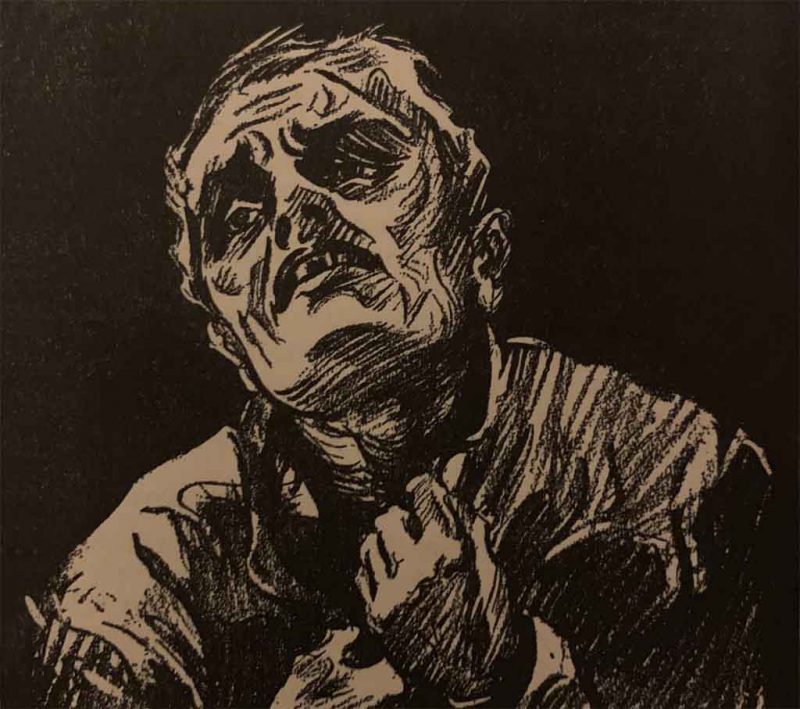What Is The Committee Mentality?
In any time of trouble, the first human response is to fall into special interest groups, each one claiming it has The Solution™ and trying to suppress all of the rest. What they miss is that each of them knows that there is a vast problem that needs solving.
At Amerika, we take the position that politics — the system of humans working together — should be understood through philosophy, which means looking at each type of political view and seeing a theory of how humans should live as being its core.
This enables for us to dispense with endless confusing and contradictory information and see that Leftism, for example, is egalitarianism, or the idea that all people are naturally equal until suppressed by others for their own gain and that our Utopia is found in artificially making all people equal through the power of the group.
We can also see that conservatism has its root in the notion of conserving, which means finding what has arisen in our past that is good and keeping it. That in turn requires us to be realists, or those who measure actions through their results in the real world and not simply in human minds, and to have some idea of what “good” is. In our view, to achieve goodness you both act as a realist and aim for the best possible result in all ways (arete). This in turn implies a positive reward based and Darwinistic mentality where the best is promoted and the worst is demoted, creating a hierarchy and values system based in principles.
For us to look at the cause of our decline, then, requires us to look at how our philosophy changed. We can see the first inklings with the establishment of agricultural civilization in the need to motivate groups, which requires leaders instead of independent actors, and quickly began to tire those leaders as the efficiency benefits of agriculture enabled the birth of a surfeit of people who had no particular skills, direction, or mental and moral organization. That in turn required us to find some way to herd these people and make them do what was necessary instead of what such people normally do, which is the third world standard of ad hoc subsistence living.
After centuries of struggling with this problem, we turned to democracy. This created two new problems:
- The Bell Curve. Humans do not all have the same intelligence, therefore they do not understand political issues the same way even if they are reading the same text. Lower intelligence people tend to reject ideas that are too complex for their intelligence level through something called the Dunning-Kruger effect, and only about a fifth of the population is in the IQ range capable of understanding these issues at a basic level.
- The Committee Mentality. Even when you have a gathering of geniuses, they fall prey to a mental state which prioritizes working with the group, the system, or other people above finding correct answers. In the name of “getting along with others,” the goal is forgotten.
The committee mentality is enhanced by an effect in which people stop believing in the efficacy or importance of their votes. Essentially, when we talk about a crowd as if it were a thinking entity with our own will, this reflects our thinking.
As we assign agency to the crowd, we see our participation as inconsequential and out of our control. As a result, we stop caring about outcomes:
One of the chief underpinnings of public choice theory is the lack of incentives for voters to monitor government effectively. Anthony Downs, in one of the earliest public choice books, An Economic Theory of Democracy, pointed out that the voter is largely ignorant of political issues and that this ignorance is rational. Even though the result of an election may be very important, an individual’s vote rarely decides an election. Thus, the direct impact of casting a well-informed vote is almost nil; the voter has virtually no chance to determine the outcome of the election. So spending time following the issues is not personally worthwhile for the voter. Evidence for this claim is found in the fact that public opinion polls consistently find that less than half of all voting-age Americans can name their own congressional representative.
This encourages the committee mentality, which sees political decisions as social questions instead of political ones. The point is no longer the decision being made and whether it will have good results, but whether the group can maintain civility.
Like Crowdism, the committee mentality strikes any group of humans independent of intelligence. It means that in order to keep order, groups force compromises upon their members and their members accept them in order to maintain their social popularity.
The committee mentality requires individuals to anticipate what the group will support and adjust their thinking to match, so it is a type of control, or exclusively self-serving authority that uses regulation of external methods to change internal thinking.
Democracy will never work for multiple reasons, but the committee mentality means that even if we have only the intelligent, moral, thoughtful, and good vote, the process of voting itself will still corrupt them and we will arrive at the same chaos only slightly more slowly.
Tags: democracy, public choice theory, the committee mentality










